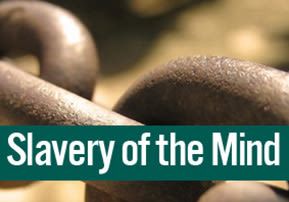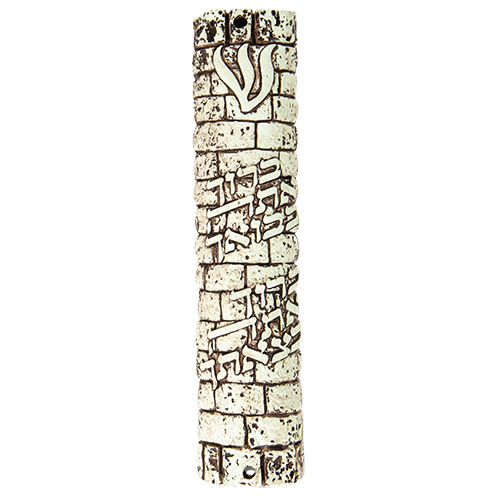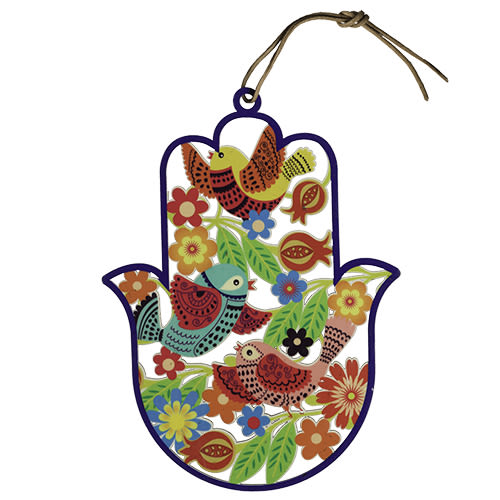
Slavery of the Mind
Are you willing to be a slave in Egypt doing back-breaking construction work all day long in the scorching sun just for a slice of watermelon at the end of the day?

Translated by Rabbi Lazer Brody
Stop Crying, Part 2
Ingratitude is slavery of the mind. In that respect, an ingrate to Hashem is usually a slave to his bodily urges. Since his mind is enslaved, he doesn’t see the myriad of favors Hashem does for him each moment.
Our people left Egypt on Pesach, and Hashem performed a continuous string of miracle after miracle during the next forty years in the desert. Hashem took complete care of everyone. Nobody had to go to work. Nobody had to go to the grocery store or to the dry cleaners. Nobody had to sew clothes. Hashem provided the Children of Israel with the manna, the Heaven-sent bread. Under the cloud of the Divine Presence, people’s clothes were automatically laundered and ironed continuously. Not only that, but they grew with the child – as a child got older, his garment grew with him. What’s more, it never wore out, never frayed, never tore, and never faded. Nobody paid water bills, for their source of water went with them wherever they went.
Remember where the People of Israel were for forty years. They weren’t encamped in an apple orchard surrounded by lush pastures and wheat fields on the banks of the Shenandoah River. They were in a bleak and rocky desert with nothing but sand and rocks. Yet in forty years, no one lacked food, water, or clothing. No one ever got bitten by a snake or scorpion. No one ever needed an eye doctor. Hashem cured them of their ills also. Who can provide for two million people in the desert for one day, much less forty years?
All the People of Israel had to do was to sit and learn Torah. They heard lectures right out of the mouth of Moses. You can be sure that he taught them The Garden of Emuna and The Garden of Peace. Yet with all these fantastic amenities, why did they still complain? The first answer, once again, is that few of them worked on themselves.
The Gaon of Vilna says that it’s easier to learn the entire Mishna and Gemara by heart than it is to correct one character trait. Few people can say that they’ve truly corrected even one flaw in their character.
Even people that invest an hour in personal prayer won’t be able to correct one character flaw or bad habit if they don’t make a concentrated and concerted effort to work on themselves in that one particular area and to pray for Hashem’s assistance every single day for a significant period of time. It’s not instant or easy, because correcting one character flaw or bad habit is more difficult than splitting the Red Sea.
Let’s summarize this first point: Even if a person learns Torah all day long and does hitbodedut every single day, if he doesn’t work seriously on character improvement, he’ll never change. It doesn’t matter if a person sees the greatest miracles with his own two eyes – if he doesn’t work on himself, he’ll remain as blind as a bat on a spiritual level. He’ll still be full of arrogance, anger, depression, bad habits and bodily lusts. This explains how so-called “religious” people can cheat, lie, or complain – they simply don’t work on themselves!
We see in the Torah that the People of Israel continually complain about Hashem’s greatest gifts. Everyone had an adequate income, no one had a mortgage, and everyone had enough to eat. Yet, they complained. They called the manna “spoiled bread.” It’s not enough that they had Heaven-sent bread that tasted like the world’s best delicacy; they wanted steaks and lamb chops too. This brings us to our second point of today’s lesson which is the root of all our troubles since the beginning of time – ingratitude. The People of Israel complained because they lacked a sense of basic gratitude for the endless favors and outright miracles that Hashem performed for them. Crying and complaining are the manifestations of ingratitude, and ingratitude invokes more stern and severe judgments than anything else.
What are the People of Israel complaining about? They remember the fish and the watermelons that they ate in Egypt…
Wait a second: are you willing to go back to slavery in Egypt, doing back-breaking construction work all day long in the scorching sun with no pay or social benefits, just to get a small fish and a watermelon at the end of the day? Where’s the gratitude to Hashem? All of a sudden you long for Egypt?
Hashem in the desert is with you day and night. His protective cloud provides central air conditioning in the summer and full climate-control heat in the winter. The cloud smoothes the rocky roads and exterminates all the pests and insects. People have everything yet still complain.
Ingratitude is the source of all character flaws and negative emotions. Sadness, despair, and depression are all manifestations of ingratitude, because if a person would open his eyes just a tiny bit to observe even a small part of Hashem’s miracles and loving acts of kindness that he does for us every second, he wouldn’t be sad or depressed!
Rebbe Nachman of Breslev says emphatically that sadness and depression are the result of people being angry at Hashem becauses Hashem doesn’t do for them what they want Him to. Think about it. What could be a bigger chutzpa on earth than being angry at Hashem? Complaining about Hashem indicates a gross lack of gratitude for the zillions of miracles Hashem did, does, and continues to do for every single person.
Crying and complaining is ingratitude. Character flaws come from ingratitude. Marital problems all stem from ingratitude. Spoiled children are the ones that were never taught gratitude. The secret of successful child education is one word – gratitude. A child who’s taught to appreciate everything in life and to express his thanks will be a child who’s successful in every single endeavor. Such a child will always be well-adjusted in society and popular as well.
The root of all our problems since the beginning of time is ingratitude. The root of all our problems in interpersonal relationships, whether between friends, between husband and wife, between employer and employee, or between parent and child is ingratitude.
An ingrate is a true slave, the type that’s willing to sell his soul for a slice of watermelon or some other bodily amenity.
This Pesach, let’s strive for freedom of the body and mind, amen.
To be continued.













Tell us what you think!
Thank you for your comment!
It will be published after approval by the Editor.